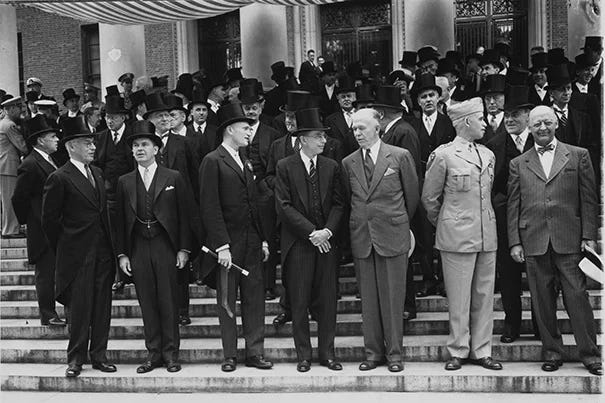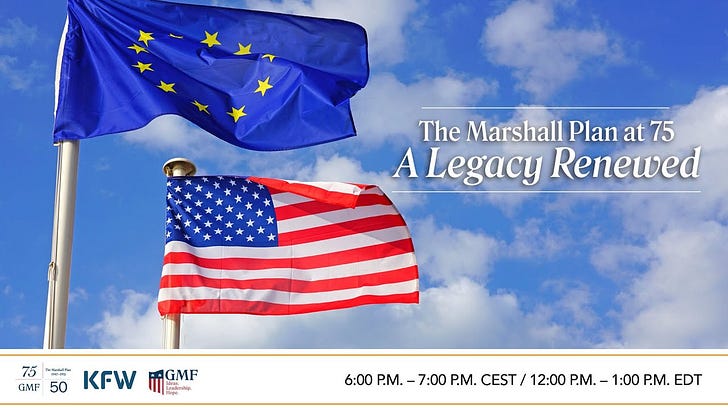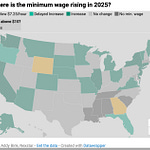Our policy is directed not against any country or doctrine but against hunger, poverty, desperation, and chaos. Its purpose should be the revival of working economy in the world so as to permit the emergence of political and social conditions in which free institutions can exist.” Secretary of State, George C. Marshall, June 1947
Secretary of Transportation Pete Buttigieg contributed to the 75th Anniversary celebration of the Marshall Plan, Berlin, Germany, May 2022.
Scrolling Twitter, I noticed a recent Tweet touting the celebration of the 75th Anniversary of the Marshall Plan taking place in May, in Berlin, Germany. The featured speaker for the event was our current Secretary of Transportation, Pete Buttigieg. As a political science student in college, I had a vague remembrance of the Marshall Plan—our country’s proposal to help Western Europe rebuild after World War II—and the marking of this anniversary, dubbed a “celebration” no less, intrigued me. Before I shared the Tweet, though, I noticed a few of the comments.
One of the responses said, and I’m paraphrasing, “What is Buttigieg doing in Europe when he has work to do here, in our country?” Well first, he likely was invited by Germany, the host of the celebration, and of course, one of our major allies in Western Europe. Our Secretary of Transportation, who now oversees one of the largest improvements to our country’s infrastructure in nearly 70 years, was invited to represent the U.S. to discuss the importance of the Marshall Plan to Europe’s recovery from World War II, which in large part helped the European nations rebuild their decimated infrastructure. But more importantly, Secretary Buttigieg chose to discuss what lessons we can learn today from the choice the United States made to extend help to another continent 75 years ago, and to celebrate what that investment meant, and still means to our global community. That is why Secretary Buttigieg was in Europe representing our country last month.
Note: The link to the transcript of Secretary Buttigieg’s full speech is listed below.1
I am certainly not a historian, but I love history and realize its study is necessary to help us solve today’s problems. For those with the knowledge to appreciate and place in context the United States’ and the world’s history, I suggest you read Doris Kearns Goodwin, Douglas Brinkley and Substack’s own Heather Cox Richardson, among many other noted historians. What I hope to do here is to offer basic information about the Economic Recovery Program of 1948, which came to be known as the Marshall Plan, and the thinking behind it. But why it is still celebrated, and how we can we use its blueprint to help us move forward today are the more important questions we should be asking in our current, tumultuous world.
It was George C. Marshall, former Army Chief of Staff and the then U.S. Secretary of State, who first proposed a comprehensive program to rebuild Europe in a speech to the Harvard graduating class in June 1947. By April 1948, the Economic Recovery Program had passed Congress with bi-partisan support and was signed by President Truman. Our former enemies and our allies in Europe (16 countries in total), were now the recipients of our financial help and support to rebuild their nations.

Here’s a short excerpt from George C. Marshall’s 1947, “Harvard Yard’ speech:
According to information from the National Archives, the Economic Recovery Act of 1948 provided $13.3 billion over the next four years to help Europe rebuild its economy, literally from the ground up. And in turn, Europe’s reconstruction helped the United States:
… the Marshall Plan provided markets for American goods, created reliable trading partners, and supported the development of stable democratic governments in Western Europe. Congress’s approval of the Marshall Plan signaled an extension of the bipartisanship of World War II into the postwar years.
Additionally, the idea behind the aid was that an economically strong Europe could better fend off takeovers from surrounding countries hostile to democracy and would provide a foundation for democracy to flourish. In Marshall’s words: “Its purpose should be the revival of working economy in the world so as to permit the emergence of political and social conditions in which free institutions can exist.”
It was noted at the time that the United States failed to learn this lesson after World War I, when it generally pursued a policy of isolationism. By the time Hitler came to power in Germany, its economy was in shambles: workers’ wages had plummeted in the previous 5 years, and the full-time unemployment rate had soared along with the poverty rate. Here’s a snapshot of the German economy in 1932 -1933 from The Wiener Holocaust Library:
As a result, [of the Wall Street crash of 1929], wages fell by 39% from 1929 to 1932. People in full time employment fell from twenty million in 1929, to just over eleven million in 1933. In the same period, over 10,000 businesses closed every year. As a result of this, the amount of people in poverty increased sharply.
Notably, the Soviet Union, our allies during World War II, rejected the aid we offered through the Marshall Plan. According to Dr. Henry Kissinger’s reflections on the Marshall Plan, written in 2015 for the Harvard Gazette: “But Soviet leader Joseph Stalin rejected the offer on ideological grounds. He denounced the plan as economic imperialism — a “ploy” to “infiltrate European countries” — and forced his satellites to follow suit, thereby defining the fault lines along which the basic Cold War strategy of containment was to occur.”
Although I’m not prone to quoting Dr. Kissinger, I think his analysis of the Marshall Plan and its impact on the world, with nearly 70 years of hindsight, is an important read.
I don’t want to paint too rosy of a picture of the benevolence of the Marshall Plan, but the idea of a government investing money to improve on-the-ground conditions and raise the average worker out of poverty is a positive. And what this does, aside from economics, is to give people hope. For example:
To British Foreign Secretary Ernest Bevin, the Marshall Plan was “a lifeline to sinking men” that brought “hope where there was none” by giving recipients permission not only to overcome their present difficulties, but to imagine their future prosperity in cooperation with the United States.
And to West German Chancellor, Konrad Adenauer, The Marshall Plan, gave Germany economic assistance but, more importantly, “new hope.” “Probably for the first time in history,” Adenauer said of Marshall’s speech, “a victorious country held out its hand so that the vanquished might rise again.”
In Secretary of Transportation Buttigieg’s talk in Germany last month, he drew another comparison—one between a country’s values (in terms of democracy or autocracy) and “its delivery of services and public goods”. This relationship is the heart of why both the initial bi-partisan infrastructure plan and the languishing Build Back Better Plan, must be delivered right now— to revitalize our aging infrastructure, pull millions of America’s people out of poverty and give each of us hope.
I’d love to hear your thoughts on this recent celebration of the Marshall Plan and whether you think its framework is still important today. Please add your ideas below!
And as always, if you are not already a free or paid subscriber, there’s no time like the present. Thanks in advance for signing up!
Note: “Many members of Congress were dubious about backing any self-perpetuating U.S. government welfare programs. However, in the end, the Senate voted 69 to 7 and the House voted 329 to 74 in favor of authorizing the Economic Cooperation Act of 1948.”
https://www.politico.com/story/2017/06/04/marshall-plan-put-forward-june-5-1947-239105















Share this post